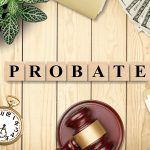Tag Archives: probate

How to Give Real Property to a Loved One at Your Death Without Probate Court Involvement
A home is often one of the most important assets that people own. Therefore, most people want to stay in their home until they die and then have a loved one receive it. One common way to transfer the deed of a house after death is through a will. However, transferring property with a… Read More »

4 Steps to Stop Mail Addressed to a Deceased Person
Once you have been appointed the executor or personal representative of a deceased loved one’s probate estate, or when you step in as the successor trustee of the loved one’s trust, one of the first things you should do is to notify the post office of the death and ask them to forward the… Read More »

Isn’t There Already a Law That Leaves Everything to My Spouse and Kids?
You may think that if you die while you are married, everything you own will automatically go to your spouse and children. But you are actually thinking of state rules that apply if someone dies without leaving a will. In legal jargon, this is referred to as dying intestate. In that case, the specifics… Read More »

How Does a Wrongful Death Claim Impact Probate Proceedings?
A wrongful death claim and probate proceedings are both civil legal matters that occur after somebody has died. When the death of a loved one is caused by another individual or entity, it can lead to the filing of a wrongful death lawsuit and, ultimately, the awarding of compensation to surviving family members. Probate… Read More »

Three Celebrity Probate Disasters and Tragic Lessons
One would assume that celebrities with extreme wealth would take steps to protect their estates. But think again: some of the world’s richest and most famous people enter the pearly gates with no estate plan, while others have made estate planning mistakes that tied up their fortunes and heirs in court for years. Let… Read More »

3 Reasons to Avoid Probate
When you pass away, your family may need to sign certain documents as part of a probate process in order to claim their inheritance. This can happen if you own property (like a house, car, bank account, investment account, or other asset) in your name only and you have not completed a beneficiary, pay-on-death,… Read More »

Using Beneficiary/Transfer-on-Death Deeds
What Is a Transfer on Death Deed? If you own real property, such as a home, in your sole name but you have not created a trust and transferred your property’s title to the trust, it is virtually guaranteed that your beneficiaries (or heirs) will have to deal with probate after your death. If… Read More »

Notice to Creditors: Understanding the Probate Process
Avoiding probate through legal techniques is a great strategy to save taxes, keep your estate from public proceedings, and avoid the need for court approval every step of the way. It can save you time, frustration, and in many cases, significant attorney and court fees. After your death, your personal representative – sometimes referred… Read More »

How Does the Court Handle Estate Administration?
Probate is the method by which judicial officials, including probate judges, process a decedent’s will. While state probate laws may vary, the general process of estate administration is quite similar across the country. Probate is the process of proving wills for decedents. A probate judge will also oversee cases where the deceased person did… Read More »

What is the Probate Process?
Probate is the legal process for authenticating a deceased person’s last will and testament, reviewing their assets, paying their outstanding debts and taxes, and distributing what remains to their heirs. After an asset-holder dies, the court will appoint the person nominated as personal representative under a valid will to administer the estate of the… Read More »











